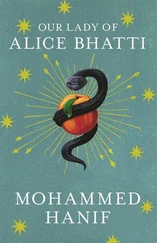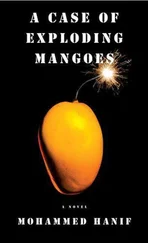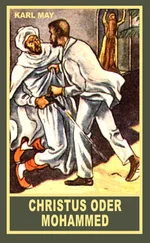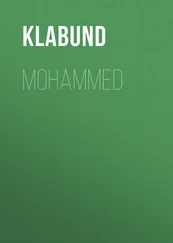Mohammed Mrabet - M'Hashish
Здесь есть возможность читать онлайн «Mohammed Mrabet - M'Hashish» весь текст электронной книги совершенно бесплатно (целиком полную версию без сокращений). В некоторых случаях можно слушать аудио, скачать через торрент в формате fb2 и присутствует краткое содержание. Жанр: Историческая проза, на английском языке. Описание произведения, (предисловие) а так же отзывы посетителей доступны на портале библиотеки ЛибКат.
- Название:M'Hashish
- Автор:
- Жанр:
- Год:неизвестен
- ISBN:нет данных
- Рейтинг книги:3 / 5. Голосов: 1
-
Избранное:Добавить в избранное
- Отзывы:
-
Ваша оценка:
- 60
- 1
- 2
- 3
- 4
- 5
M'Hashish: краткое содержание, описание и аннотация
Предлагаем к чтению аннотацию, описание, краткое содержание или предисловие (зависит от того, что написал сам автор книги «M'Hashish»). Если вы не нашли необходимую информацию о книге — напишите в комментариях, мы постараемся отыскать её.
M'Hashish — читать онлайн бесплатно полную книгу (весь текст) целиком
Ниже представлен текст книги, разбитый по страницам. Система сохранения места последней прочитанной страницы, позволяет с удобством читать онлайн бесплатно книгу «M'Hashish», без необходимости каждый раз заново искать на чём Вы остановились. Поставьте закладку, и сможете в любой момент перейти на страницу, на которой закончили чтение.
Интервал:
Закладка:
One day when he had just sold his charcoal in the market, a Djibli came up to him and asked him if he had any work for him to do. The Rifi said that if he did not mind living in the country, he could come and work for him until the beginning of summer. The Djibli agreed, and together they went out to Rehreh, to the Rifi's house.
There's a shack over there where you can sleep, said the Rifi. Then he showed the Djibli around his property.
Tomorrow morning, incha'Allah, we'll cut some trees and make charcoal, he said. And if we finish early enough, we can plant a little kif here in this field.
Ouakha, said the Djibli. They had dinner, and the Djibli went out to his shack to sleep. In the morning the Rifi got up and made coffee. Then he went out and woke the Djibli and told him to come and have breakfast.
After they had eaten they smoked a few pipes of kif together, and then they went out and began to chop down trees. They would work a while, sit down and talk, and then go on chopping. They worked until they had enough for four fires, and they covered each pile of wood with earth and built the fires. They finished well before sunset, so that there was still time for them to work a while planting kif. By the time it got dark they had sowed a good many rows of seeds. The next day passed in the same way. The Djibli was content. At the end of the first week they had made so much charcoal that they needed six donkeys to carry it all. They loaded it and took it in to the Souq el Fham. The Rifi sold it for fourteen thousand francs. He gave five thousand to the Djibli, who was delighted. He was thinking of how he would be able to save it all, because he had no expenses at the Rifi's house.
Each day they cut down trees and each week they carried the charcoal to the market and sold it. Meanwhile the patch of kif was growing. The Rifi covered it carefully every night with three sheets of tarpaulin, and took them off the first thing each morning, so the leaves could get the early sun.
When summer came, the Rifi set to work picking his vegetables. Now the rains are finished, he told the Djibli, and there's no more work for you. But come back when it begins to rain next winter.
He gave a great many vegetables to the Djibli, as well as a load of charcoal and ten thousand francs.
The Djibli packed everything onto his donkey. Then he stood looking at the Rifi. And the kif? he said.
You can see when it'll be ripe. Come around and I'll give you your share, the Rifi told him.
The Djibli said good-bye and went home. But he was not happy, in spite of all the Rifi's gifts. He kept thinking of how hard he had worked there in Rehreh, and he felt certain that when the kif was ripe the Rifi would not keep his word.
I wonder how much he's going to get for all that kif, he thought. I'll never see any of it.
For several weeks the Djibli went on thinking about the kif. Finally he decided not to wait any longer. One night he started out for Rehreh on his donkey carrying a pail of creosote with him.
In the whole village there was not a light, but he knew every path. He went straight to the Rifi's kif patch and carefully spread the creosote over each plant. Then he covered everything again with the tarpaulins and rode back to the city. Early in the morning the Rifi got up and went out to uncover the kif. His eyes grew large when he saw the dead plants shining with creosote. He stood a while looking, and the tears came out of his eyes.
Then he uprooted the kif and carried it to the edge of the stream, where he made a bonfire of it. He watched it until it all had burned. That day he dug up the topsoil in the kif patch and made a high pile of it, to get rid of all the creosote that had soaked into the earth. After that he spaded the dirt underneath and sowed more kif seeds. Before the day was finished he had planted a new kif patch.
This time he was even more careful of his young plants. He watered them very gently in the evening, and hurried to look at them several times each day, to be certain they were all right.
One afternoon the Djibli appeared in the field where the Rifi was working. Salaam aleikoum.
Aleikoum salaam.
They shook hands. How's everything? said the Djibli. How's that kif? Isn't it ready yet?
The Rifi sighed. The kif! he said. It's gone. Some son of a whore came one night and poured tar over it all. I had to pull it up and burn it. But I've got some more growing, and it won't be long before it's ready. I'm making it grow fast. I'm only afraid of the dew at night. I have to cover it very early, before sunset, or it'll go black. Come and look. It's growing up healthy and tall.
He took the Djibli over to see the young plants. The Djibli stared at them for a moment. There are a lot of sons of whores around, he said.
Let's have some tea, said the Rifi. We can sit over there under the cypresses.
He made tea in the garden, and they took their glasses and sat on a mat in the shade. And they smoked their pipes and talked.
When they got up the Rifi said: It won't be long now before winter will be here. As soon as it begins to rain, you come back to work.
Good, said the Djibli.
The Rifi filled the panniers of the Djibli's donkey with vegetables, gave him two thousand francs, and they said goodbye.
When the Djibli had gone, the Rifi sprinkled his kif plants with water and gently spread the tarpaulins over them.
Behind the scrub where the kif was planted there was a path that led between the bushes down to the stream. One day when the Rifi stood looking at his kif, he saw a wild boar going along the path. This worried him. He went to the house and got a pick and shovel, and then he walked down toward the stream. At a place under the trees he began to dig, and he went on digging until he had made a trench about six feet deep.
All the next day he carried baskets full of broken bottles and old barbed wire and cactus, until the bed of the trench was full. After that he built a trellis of cane stalks and laid it over the top of the pit, and spread heavy paper over the canes. Then he covered it all with earth. All this took a long time. He ran back and forth for many hours. And each time he passed the patch of kif he looked at it.
If a boar walks just once through the kif it'll kill it, he thought. I've got to catch that boar. Besides, I can sell it to the Spaniards at Oued Bahrein.
Late one afternoon not long afterward, before the rains had begun, there was a knock at the Rifi's door. He opened it and found the Djibli standing there.
Msalkheir! I wasn't doing anything this evening, and I thought I'd come by and see you. I was wondering. Could you give me a few vegetables?
Yes, I think so, said the Rifi.
And the kif? How's it coming?
It's almost ripe, the Rifi told him. But there's not much of it this time. Come and look.
They walked together out to the kif patch. As the Djibli went along he was thinking: He won't give me any, that's certain. He'll find some excuse. He's already saying there isn't much.
After they had stood looking at the kif, they went back to the house and sat down. You'll eat with me, the Rifi said.
Later they drank tea and smoked kif. When it was time for the Djibli to start back to the city, the Rifi went out and got the vegetables for him. He filled one pannier with vegetables and the other with charcoal, gave the Djibli a thousand francs, and sent him riding down the road on his donkey.
All that day the Djibli had been thinking of the kif he had expected to carry back with him to the city. Now, without the kif, his head was full of poison for the Rifi. Before he got home he had already resolved to kill the new batch of kif as well.
On the way to his house he stopped at a café and bought a packet of kif. He went home and sat down to smoke, and he smoked pipe after pipe. Soon he got up and went out into the dark. With the pail of creosote he set out on the donkey again for Rehreh.
Читать дальшеИнтервал:
Закладка:
Похожие книги на «M'Hashish»
Представляем Вашему вниманию похожие книги на «M'Hashish» списком для выбора. Мы отобрали схожую по названию и смыслу литературу в надежде предоставить читателям больше вариантов отыскать новые, интересные, ещё непрочитанные произведения.
Обсуждение, отзывы о книге «M'Hashish» и просто собственные мнения читателей. Оставьте ваши комментарии, напишите, что Вы думаете о произведении, его смысле или главных героях. Укажите что конкретно понравилось, а что нет, и почему Вы так считаете.












